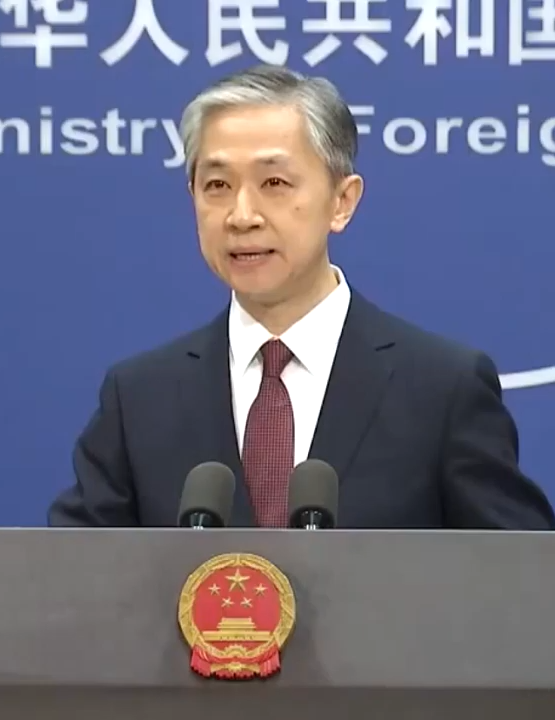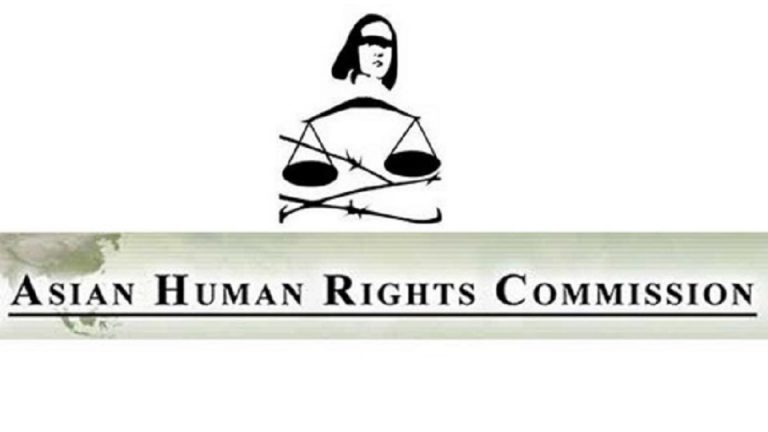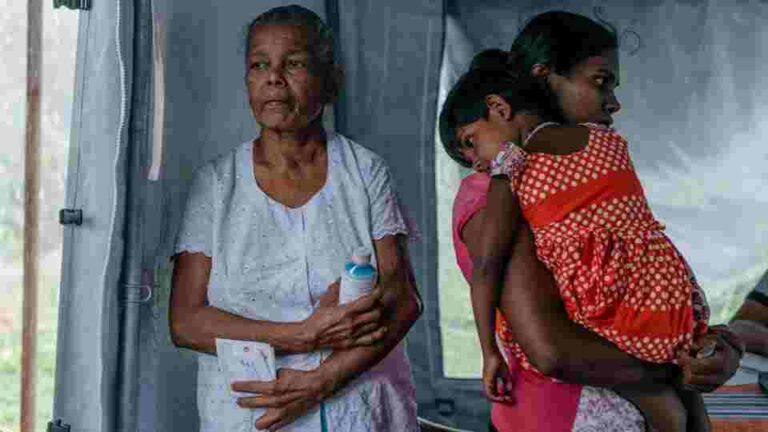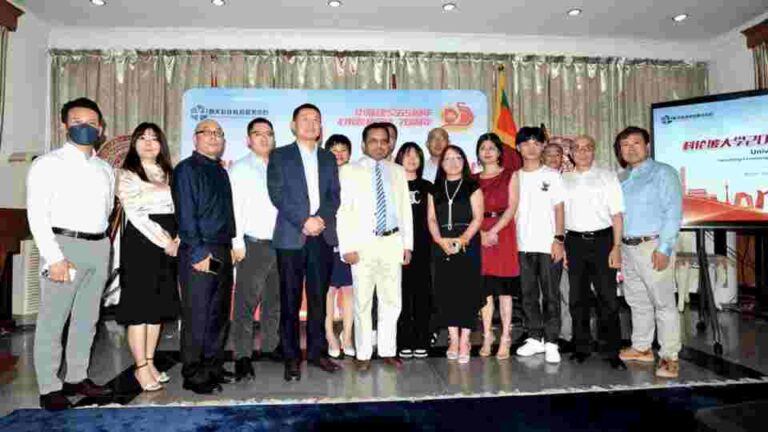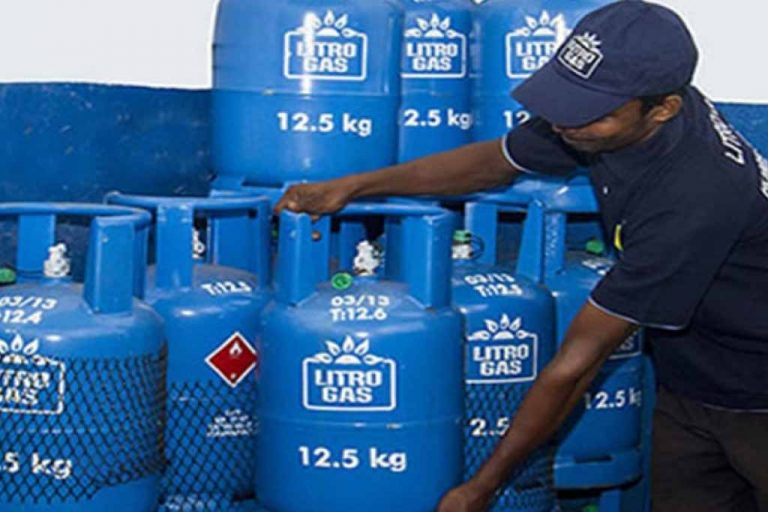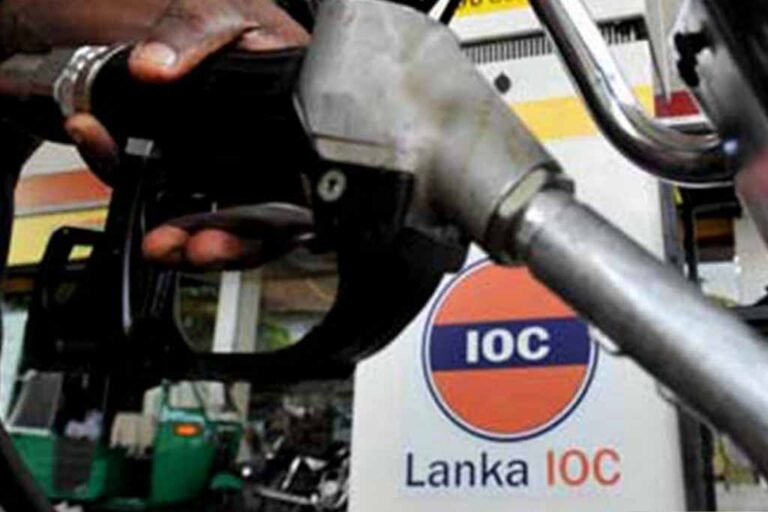In the wake of Sri Lanka’s request to defer the planned docking of a high-tech Chinese research vessel at the strategic Hambantota Port, China on Monday took a dig at India, saying it was “senseless to pressure” Colombo by citing the issue of security concerns.
According to reports from Colombo, Sri Lanka has asked Beijing to defer the arrival of the Chinese space and satellite tracking research vessel ‘Yuan Wang 5’ which was scheduled to dock at the Hambantota Port from August 11 to 17 due to security concerns expressed by India.
Responding to the reports, Chinese Foreign Ministry spokesman Wang Wenbin told a media briefing in Beijing that China has taken note of the reports and asserted that “the cooperation between China and Sri Lanka is independently chosen by the two countries and meets common interests. It does not target any third party”.
It is “senseless to pressure Sri Lanka” by citing the issue of security concerns, he said, in reference to the reports that Sri Lanka’s move was attributed to concerns expressed by India.
“Sri Lanka is a sovereign state. It can develop relations with other countries in the light of its own development interests,” he said.
“China urges relevant parties to see China’s scientific explorations in a reasonable and sensible way and stop disturbing the normal exchange between China and Sri Lanka,” Mr Wang said.
Sri Lanka is a transport hub in the Indian Ocean. Many scientific exploration ships including those from China have stopped at the port of Sri Lanka for resupplies, he said. “China has always exercised the freedom of navigation in the high seas and fully respects the jurisdiction of coastal states for the scientific exploration activities within their waters,” he said.
According to media reports, India informed Sri Lanka that the docking of the high-tech Chinese research vessel could pose a threat to its national security.
Sri Lanka received strong messages of protests from India as the ship was said to have the capability to track satellites and intercontinental ballistic missiles, the reports said.
India has said it carefully monitors any development having a bearing on its security and economic interests.
“We are aware of reports of a proposed visit by this vessel to Hambantota in August,” India’s External Affairs Ministry Spokesperson Arindam Bagchi said in New Delhi when asked about the reports of a proposed visit by the Chinese vessel.
“The government carefully monitors any development having a bearing on India’s security and economic interests and takes all necessary measures to safeguard them,” he said last month.
Reports from Colombo on Sunday said China’s embassy in the country sought an urgent meeting with senior Sri Lankan authorities after Colombo sought deferment in the planned docking of the research vessel.
Some Sri Lankan news portals also reported that the country’s President Ranil Wickremesinghe held a closed-door meeting with China’s Ambassador Qi Zhenhong after Colombo sought the deferment of the planned docking.
On July 12, amidst the political turmoil in Sri Lanka, the previous government approved the Chinese vessel’s docking at the Hambantota port.
The Chinese vessel was expected to dock at the Sri Lankan port for “refuelling and replenishment” and to conduct satellite control and research tracking in the northwestern part of the Indian Ocean region through August and September.
Prime Minister Dinesh Gunawardena recently said Sri Lanka was looking forward to settling the issue of the vessel’s visit with an “approach of friendship”
China asks India to ‘stop exerting pressure on SL citing security reasons
NITF’s reinsurance issue inflicts financial risks on SL General insurance
Sri Lanka general insurance companies are likely to face financial risks when settling claims for the insurance cover for various sectors as the foreign reinsurance contract of local company – reinsurer the National Insurance Trust Fund’s (NITF) has been terminated.
This was a result of non-payment of premium by a local broker due to scarcity of dollars despite the settling of all dues in rupees by the NITF, Chairman of the Fund M.M. Mawahib Mawjood said.The NITF reinsures with an overseas company through a local agent in Colombo.
The NITF is Sri Lanka’s sole reinsurer, and all domestic general insurers must deposit 30 per cent of their reinsurance cover with the fund; the remainder of 70 per cent has to be distributed to overseas companies by these local insurers.
Mr. Mawjood noted that the payment of premiums to the foreign reinsurer is the responsibility of the local broker and the cancellation of the contract was not a fault of the NITF as it has fulfilled all of its financial obligations.
According to the agreement premium payments to the foreign reinsurer should be made by the local broker after recovering the due amount in rupees from the NITF, he clarified.
Valuable public and private assets and property are insured by leading insurers and 30 per cent of their insurance cover has been reinsured with the NITF, insurance industry sources said.
A critical situation in the re-insurance programme has arisen following the cancellation contract of the NITF by the foreign insurer, official fiscal records revealed.
With the intervention of relevant state authorities and chambers and the NITF, the broker has been able to settle some arrears by obtaining dollars from several local banks but later it had no option other than the defaulting of the premium payments of international reinsurer.
Mr. Mawjood added that with the intervention of the Finance Ministry and the Central Bank measures will be taken to arrive at some sort of a settlement in renewing international reinsurance arrangements. However he noted that NITF provides Strike, Riot, Civil Commotion and Terrorism (SRCCT) cover on the island which is re-sold by all insurers.
This reinsurance cover has not been affected as there was no issue with its foreign reinsurer as the relevant local broker is meeting financial obligations in dollars without any delays, he disclosed.
The foreign currency liquidity crisis in local banks has restricted local insurers’ ability to meet foreign currency obligations, a head of local general insurance company said adding that premium payments to foreign reinsurers and other costs that are typically sourced from overseas have become an issue at present.
High Commissioner Milinda Moragoda meets Tamil Nadu Parliamentarian Kanimozhi Karunanidhi
Further strengthening the engagement with the State of Tamil Nadu and as a follow-up to the meeting with its Chief Minister in early June, Sri Lanka’s High Commissioner to India Milinda Moragoda met with Lok Sabha MP for Thoothukkudi constituency, Kanimozhi Karunanidhi on 4 August 2022 in New Delhi.
Parliamentarian Kanimozhi Karunanidhi, who was in New Delhi to attend the monsoon session of Parliament, is the daughter of the former Chief Minister of Tamil Nadu M. Karunanidhi and sister of the present Chief Minister M.K. Stalin.
The Lok Sabha MP extended a warm welcome to High Commissioner Moragoda. During the very cordial discussion that followed, the High Commissioner thanked the people of Tamil Nadu for the humanitarian assistance that they have been extending to Sri Lanka to help manage the current economic situation.

The High Commissioner and the Parliamentarian exchanged views on the very close ethnic, religious and cultural affinities between the State of Tamil Nadu and Sri Lanka and discussed ways and means to further strengthen them.
High Commissioner Moragoda also presented a copy of the Tamil translation of the book containing his parliamentary speeches to MP Kanimozhi. The High Commissioner recalled how he had presented a copy of the same book to her father, the late M. Karunanidhi, former Chief Minister of Tamil Nadu, in 2006.
A senior member of the Dravida Munnetra Kazhagam (DMK) and a poet, Kanimozhi Karunanidhi functions as the chief of the party’s wing for art, literature and rationalism. She had worked as a journalist before entering politics.
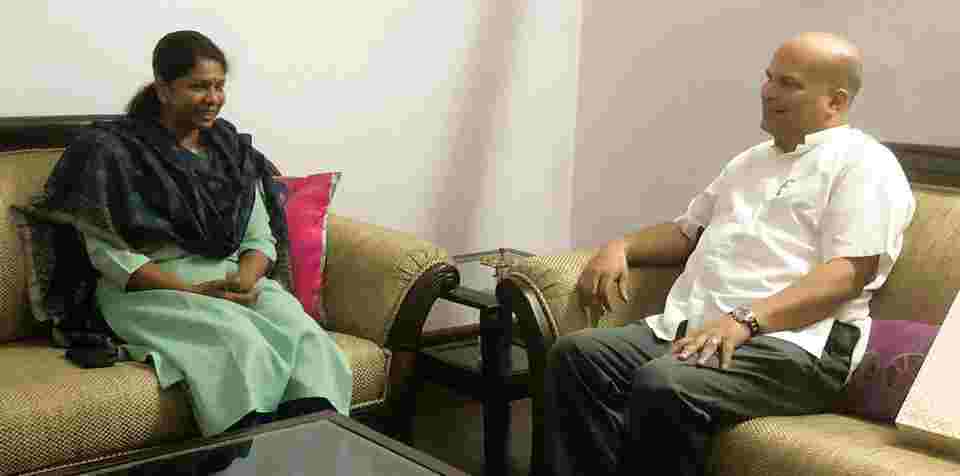
High Commissioner Moragoda was accompanied by Deputy High Commissioner Niluka Kadurugamuwa and Minister Counsellor of the High Commission of Sri Lanka in New Delhi Gamini Sarath Godakanda.
High Commission of Sri Lanka
New Delhi
08 August, 2022
SRI LANKA: Illegal arrests and illegal detentions damage the legal system
By Basil Fernando
Illegal arrests and illegal detentions do not only harm individuals, they also cause irreparable damage to the legal system as a whole. The recent wave of arrests of those who have participated in peaceful demonstrations has not only caused serious damage to the life and liberty of these individuals but they have caused even much greater damage to the entire legal system of Sri Lanka. This damage will continue to make its impact felt on the system long after these particular incidents have passed and even been forgotten. Collectively, the legal system of Sri Lanka has become much weaker due to the abuse of power involved in violating some of the fundamental principles on which the entire legal system rests. Disrespect for the individual and the protection of persons from illegal arrest and illegal detention goes to attack the very heart of the system. It is only a foolish ruler or an administrator that resorts to abuse the people’s liberties in the manner it has been done within the last few weeks. Such abuse of a legal process manifests the utter actions of the understanding of the fundamental rules that underline the social stability and the function of the law in maintaining the confidence of the people in the institutions that are created by the State in order to provide protection to the people. Once the population begins to comprehend that the rulers themselves do not respect the law, it would hardly be a surprise if the people adopt the same attitude. A ruler that manifests disdain for the law also creates conditions for the people to have disdain for the same laws. Therefore, in the recent weeks, wrongs have been done against the legal system of Sri Lanka by the acts authorized by the new President Ranil Wickremesinghe.
The speeches about running the country according to the law and regulations have been repeated by the new President under these circumstances. Laws and regulations, if they are to be respected by the people, require not a mere use of force to enforce such laws and regulations but also a moral authority to go with it. When the law is divorced from a moral authority, such laws and regulations become a mockery. It is not only the people who begin to disdain such laws and regulations but also many enforcers of such laws such as the Police and other security personnel also begin to treat such laws and regulations as mere instruments of suppression. Suppression merely means the authorization of violence by the State itself. When the law enforcement officers begin to see that they are no longer protectors of the people and the rule of law framework of the country but are mere protectors of some politicians who are using them in order to protect themselves from their electors, then the very psychological conditions that are necessary for proper suppliance with the law disappears. Thus, the law enforcement officers get themselves transformed into obedient servants of politicians and cease to be servants of the law. Such transformations have a serious impact on destabilizing the entire society.
In this regard, some make distinctions between what is legal and what is legitimate. Even these distinctions do not stand to be valid when closely examined. Within a system of the rule of law, nothing can be legal if it is not legitimate. If the decisions are made outside the rule of law framework, then, of course anything could be given the appearance of legality. For example, in Sri Lankan authorization, the burial of dead bodies by the suspension of the normal laws relating to suspicious deaths where the authorization of a magistrate is necessary before such burials, resulted in allowing large scale enforced disappearances,. Some may argue that since the emergency regulations allowed such a suspension of rules relating to burials that it is legal though it may not be legitimate. In fact, the emergency regulations did not make the criminal act of killing and burial legal. Despite the emergency regulations, such acts remain criminal.
The same can be said about orders or interpretations made on the basis of a Constitution that itself violates the fundamental principles of the rule of law. The 1978 Constitution fundamentally violates the basic principle of the rule of law that is that everyone is equally bound by the same laws. Therefore, the 1978 Constitution is a piece of legislation which is fundamentally flawed and therefore illegal. A law that fundamentally undermines the foundational principle of the rule of law cannot have legality or legitimacy. If such a Constitution provides processes which are themselves contrary to the wider purposes of democracy and the rule of law, then such processes cannot be treated as legal or legitimate.
Therefore, Sri Lanka is trapped in an entanglement that has become ever so complicated due to the very fact that the Constitution on which the whole political system itself is based is neither legal nor legitimate.
It is not possible to undo these entanglements without addressing the fundamental problem of what one has to do with the 1978 Constitution. This has to be done one time or the other before Sri Lanka can return to the state that is rooted in the rule of law and which can blame legitimacy for its actions.
All of these are not abstractions. All these entanglements that were created about the very nature of the legal system created insoluble problems for the political system and the political system in turn created the situation of bankruptcy that Sri Lanka is faced with at the moment in terms of this economy. The aspects of illegality, the illegitimacy of political processes and the bankruptcy faced by the economy are all bound together.
Instead of trying to face these very complicated problems, allowing of the arrest and detentions and other forms of abuse of the right to protection of the individuals and society will only go to complicate things more and more and will not bring about any kind of solution to the problems of acute poverty that is spreading due to a failed economic, political and legal system.
UNFPA appeals for $10.7 million to meet the urgent needs of 2 million women and girls affected by the economic crisis in Sri Lanka
08 August 2022 – UNFPA, the United Nations sexual and reproductive health agency, has launched an appeal for US$10.7 million to deliver lifesaving healthcare to more than 2 million women and girls in Sri Lanka in the next six months.
Sri Lanka is experiencing its worst socio-economic crisis since independence. The country’s once robust healthcare system is teetering on the edge of collapse amid debilitating power shortages and a lack of critical supplies, equipment and medicine. This is severely impacting the delivery of sexual and reproductive health services, including maternal health care and access to contraception. Existing protection mechanisms for women and girls in need, including survivors of gender-based violence, have also been severely compromised. A UN survey in May 2022 indicates women and girls’ vulnerability to violence is increasing at the same time as services, including health, police, shelter, and hotlines, are declining due to a lack of financial resources.
“The current economic crisis in Sri Lanka has far-reaching consequences for women and girls’ health, rights and dignity,” said Dr. Natalia Kanem, UNFPA Executive Director. “Right now, UNFPA’s priority is to respond to their unique needs and safeguard their access to lifesaving healthcare and protection services.”
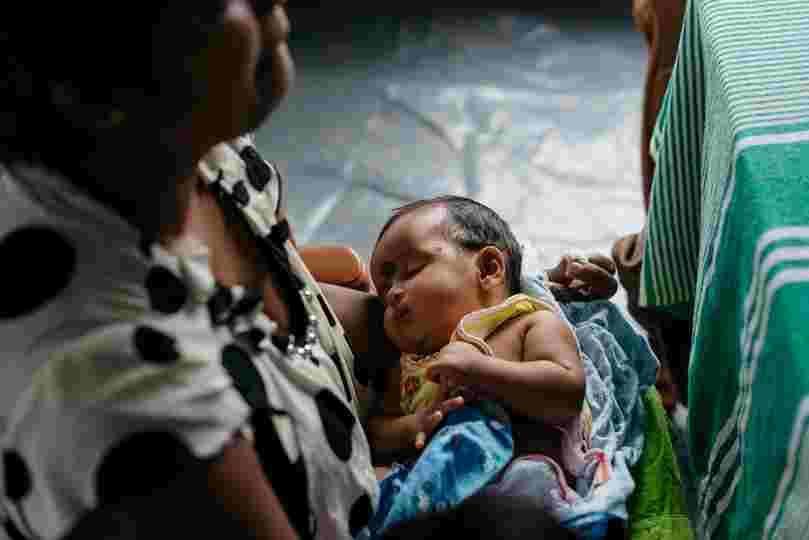
Years of effort have brought steady gains for Sri Lankan women and girls. Some 99 percent of women give birth at health facilities, assisted by medical personnel, but this achievement is now under threat. An estimated 215,000 women are currently pregnant, including 11,000 adolescent girls, and around 145,000 women will deliver in the next six months. Approximately 60,000 women may require access to surgical interventions. UNFPA is providing cash and voucher assistance to pregnant women to support access to health facilities – and continues to build the capacity and skills of the extensive midwifery force across the country – but with infrastructure and transportation challenges, childbirth could be a life-threatening, if not fatal, experience for pregnant women unable to access skilled care.
“UNFPA is committed to meeting the critical health and protection needs of women and girls,” said Kunle Adeniyi, UNFPA representative in Sri Lanka. “Our focus is to strengthen sexual and reproductive health and gender-based violence response services to reduce the long-term repercussions of the current crisis.”
As part of its appeal, UNFPA plans to:
● Distribute lifesaving medicines, equipment and supplies, including for emergency and obstetric care and the clinical management of rape and domestic violence, to meet the priority reproductive health needs of 1.2 million people.
● Supply 10,000 delivery, maternity and dignity kits to women and girls in need, including persons living with disabilities.
● Provide more than 37,000 women with cash and voucher assistance to access reproductive health and protection services.
● Ensure 500,000 women receive information on warning signs during pregnancy.
● Strengthen the capacity of 1,250 midwives to support deliveries in primary health care settings, and for the clinical management of rape.
● Support 10 shelters to expand services for survivors of gender-based violence.
● Provide 286,000 women and girls with information on gender-based violence prevention, and available services and support.
● Support 12,500 women with livelihood programming to reduce the risks of gender-based violence.
● Provide 4,000 adolescent girls with menstrual hygiene supplies.
● Lead and coordinate activities to strengthen prevention, protection and referral systems for survivors of gender-based violence.
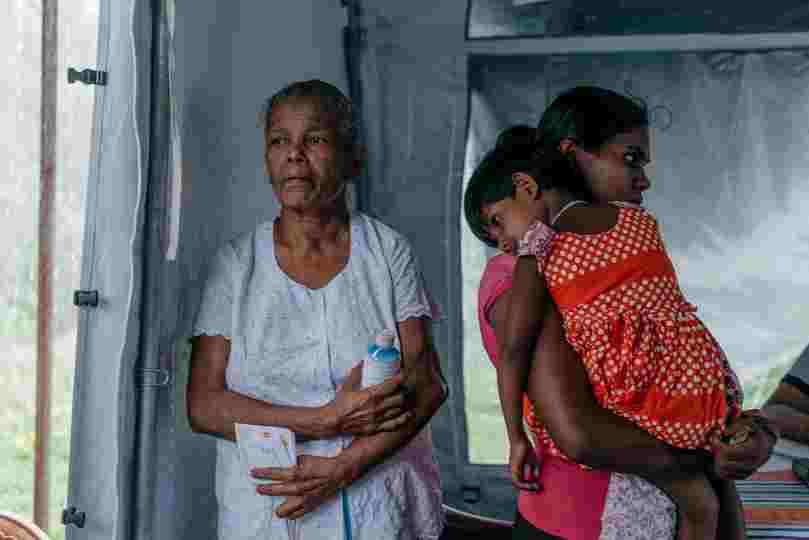
With over 50 years in Sri Lanka, UNFPA is leading efforts to protect women and girls’ rights to give birth safely and to live free from multiple forms of gender-based violence, coordinating interventions with UN agencies, and a network of international and local partners. UNFPA has already procured essential reproductive health medicines and supplies and distributed hygiene items, including sanitary pads, to women and girls in need. Cash and voucher assistance is being provided to pregnant and lactating women to ensure uninterrupted access to health facilities for safe pregnancy and deliveries. UNFPA also continues to support seven shelters across the country.
UNFPA’s response is part of the Humanitarian Needs and Priorities Plan launched by the UN in Sri Lanka which calls for US$ 47 million to support 1.7 million people between June and September 2022.
Chinese students to follow the Master of Finance in Economics (MFE) of the University of Colombo soon
The Sri Lanka Embassy hosted the commencement ceremony, for a batch of Chinese students enrolled for the Master of Financial Economics Programme (MFE) – 2022 at the University of Colombo on 29 July 2022. The first batch comprises of 30 Chinese students. This followed after extensive efforts made by the Embassy to encourage Chinese students to study in Sri Lanka. These students will pay the full course fees.
The Embassy of Sri Lanka in Beijing, China-Asia Economic Development Association of the University of Colombo, Beautiful China Investment Co, and the Tomorrow Technology Education Services Center, collaboratively organized this event.
Speaking at the event, Ambassador Dr. Palitha Kohona, who is an alumnus of the University of Colombo, congratulated the students for selecting the MFE Programme of the University and said that Sri Lanka warmly welcomes international students. He said that the Country’s mission is to “delight” the students, industry, employees, and other stakeholders with the country’s higher education system and that Sri Lanka will offer Degree programmes to fee paying foreign students.
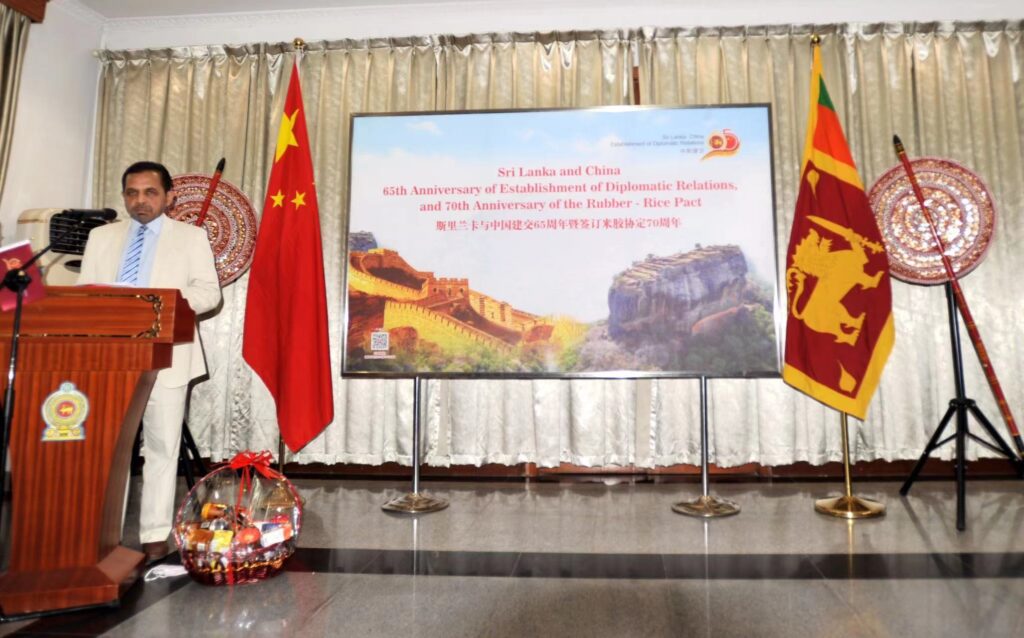
Sri Lanka has produced a large number of outstanding luminaries, who have contributed to the world in variety of fields such as science, law, ICT, biology, etc, and now work in institutions such as the NASA, the United Nations, the Boeing, Google, etc.
The Ambassador encouraged more and more Chinese students to study in Sri Lanka. At the same time, he invited the family members of the students to visit Sri Lanka as tourists, and enjoy the beauty and the hospitality of Sri Lanka.
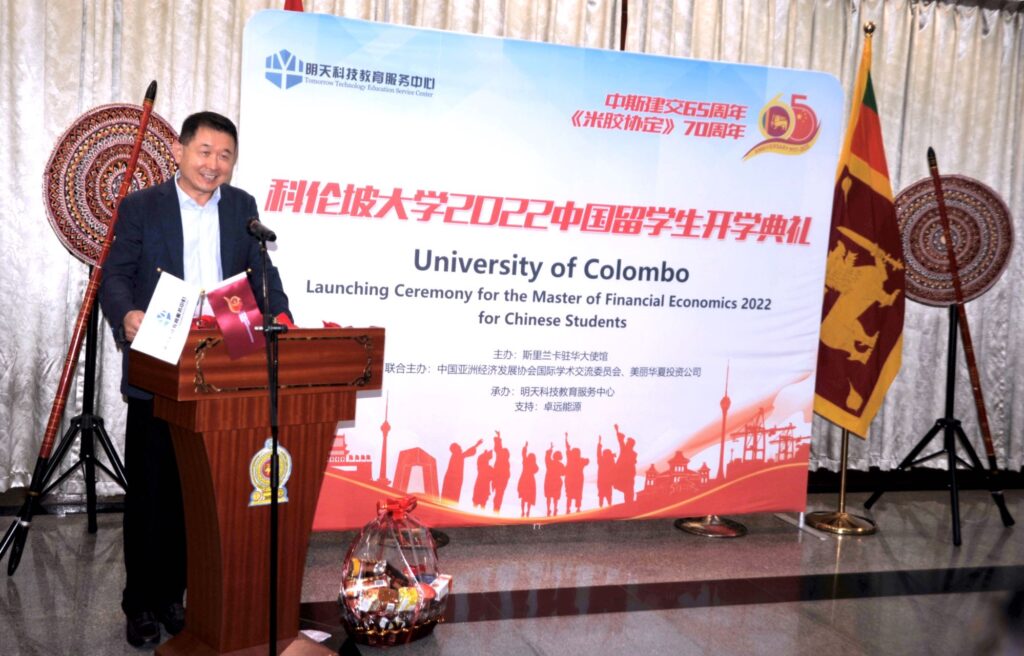
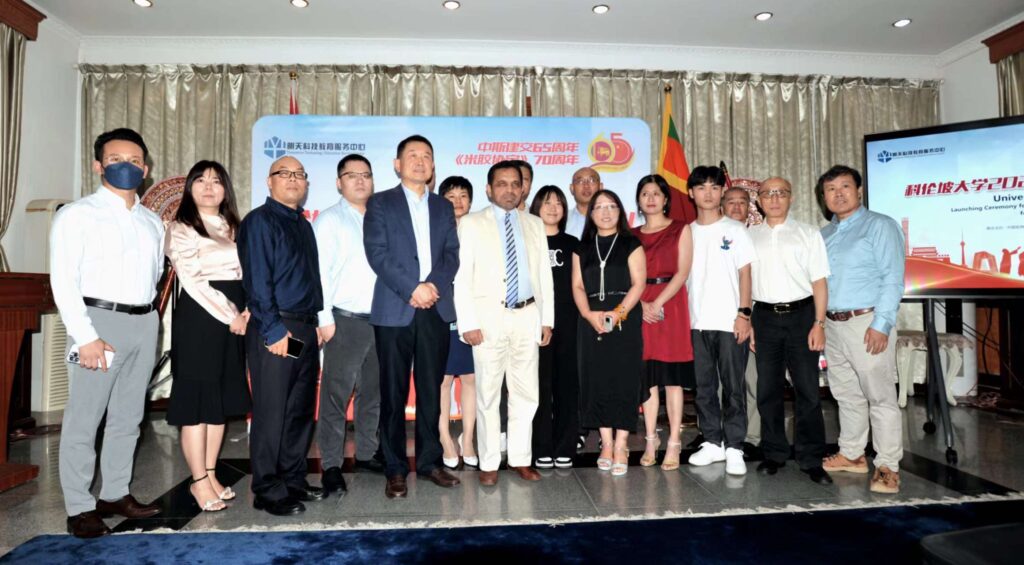
President of the International Academic Exchange Committee of China-Asian economic development Association (CADEA) Wang Kejian requested the students to take full advantage of this opportunity to acquire knowledge, act as a bridge and as cultural messengers between China and Sri Lanka, and write a new chapter in the friendship between the two countries. He further said that the Beautiful China Investment Co, together with the Tomorrow Technology Education Services Center, will send more Chinese students to study in Sri Lanka. The event was attended by more than 80 participants including media, and concluded with a reception serving Ceylon Tea and Thambili (King coconut) water.
Embassy of Sri Lanka
Beijing
08 August, 2022
Stalin pledges struggle for system change will continue (VIDEO)
The struggle of the people was launched for a system change and it will continue to run against all odds, pledged Chief Secretary of the Ceylon Teachers’ Union Joseph Stalin, speaking to reporters after being granted bail today (08).
The government has laid its hands on the country’s trade unions, students and public movements and everyone, therefore, should come together and defeat this repression, the Trade Union Leader emphasised.
The expected outcome for a system change will also be achieved, he told the reporters.
MIAP
LITRO Gas price to be slashed from midnight today!
The price of LITRO Gas will be slashed from midnight today (08).
Accordingly, the price of a 12.5 kg domestic LP gas cylinder will drop by Rs. 246, declaring the new price to be Rs. 4,664.
The price of a 05 kg domestic LP gas cylinder will drop by Rs. 99, and the price of a 2.3 kg cylinder, by Rs. 45.
MIAP
Court denies Police’s request to issue order barring tomorrow’s protest
The Colombo Chief Magistrate Court has denied the Police’s request to issue an order barring the protest scheduled to be held tomorrow (09) in Colombo.
The request was made by the Kurunduwatta Police before Colombo Chief Magistrate Nandana Amarasinghe.
The Chief Magistrate emphasised that the Right to peaceful protest cannot be interfered with, adding that however, any breach of peace or damage to property during the protests allows the Police to use power to take necessary measures.
Since April 09, the 09th of every month was evident of major protests in Colombo and both Gotabaya Rajapaksa and Mahinda Rajapaksa had to leave their titles as the President and the Prime Minister due to the power of the people.
Accordingly, another protest of that capacity is set to be held tomorrow as well, according to reports.
MIAP
Govt approves opening of 50 filling stations for LIOC
The Lanka Indian Oil Company (LIOC) will be given the approval to open 50 more filling stations. The Energy Minister has also given his approval in this regard.
Accordingly, LIOC Managing Director Manoj Gupta has informed the Colombo Stock Exchange that the company has been given the approval to open more filling stations.
LIOC is the only company involved in the distribution and sale of petroleum other than the state-run Ceylon Petroleum Corporation (CEYPETCO) and accordingly, more LIOC operations will be expanded throughout the country.
In the wake of the crisis regarding the import of petroleum the government has been focusing on the privatisation of all state-owned fuel stations, but such a move has not yet been made.
MIAP

